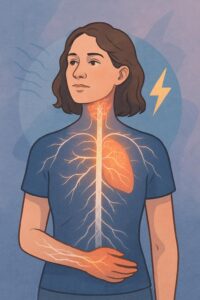Multiple sclerosis (MS) is a chronic autoimmune disease where the body’s immune system attacks the protective covering (myelin) of nerves in the brain and spinal cord. This damages the communication between the brain and the rest of the body and can eventually lead to nerve damage.
MS is unpredictable, and symptoms vary widely between people—some may experience mild problems, while others may lose the ability to walk or see clearly.

